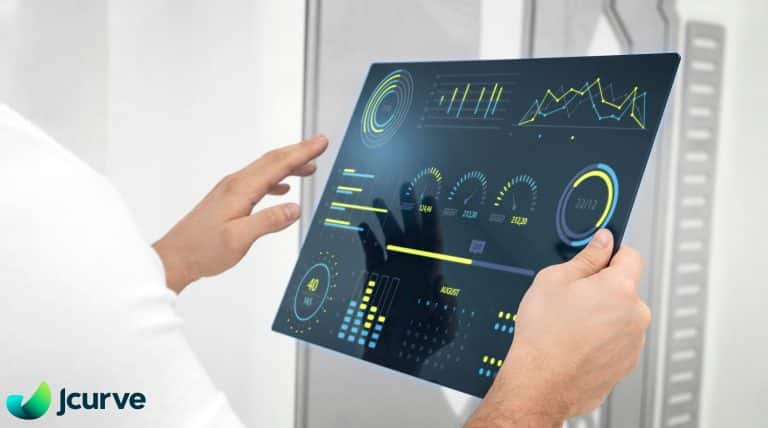This EOFY Guide for Small Business is a guest post from our friends at All That Counts bookkeepers.
To take advantage of all the deductions and tax minimisation strategies available to your business you need a clean set of up to date accounts. We would like to draw your attention to some of the key items that need to be addressed in order for your accountant to minimise your tax.
Accounts to Reconcile
- Bank & Credit Card Accounts
Reconcile statement balance to 30 June.
- Clearing Accounts
Clearing accounts should have a zero balance at the EOFY.
- Petty Cash
Petty cash needs to be counted and reconciled to balance as at 30 June. Ensure all receipts have been entered into your accounting software and reconciled to a petty cash tin held by the business.
- Undeposited Funds
This account should reflect the amounts un-banked as at 30 June.
- Suspense Accounts
This should only be used as a holding account until you have certainty where to allocate the transaction. Ensure this is cleared out as at 30 June.
- PAYG Withholding
The balance reflected in this account as at 30 June should be the amount left to remit to the ATO. This usually would be 3 months (last quarter Apr – Jun).
- Salaries & Wages
Prior to producing payment summaries to staff you need to ensure that the gross wages in your payroll report agrees to the balance in your profit & loss for the year and also agrees to the total sum of payment summaries produced.
- Superannuation Payable
The balance reflected in this account as at 30 June should be the amount left to remit to the Super funds. This usually would be 3 months (last quarter Apr – Jun).
- GST Liability
The balance reflected in this account as at 30 June should be the amount that is payable/refund to the ATO. This usually would be 3 months (last quarter Apr – Jun) if on quarterly BAS. It’s always a worthwhile exercise to prepare a spreadsheet of what was lodged with the ATO and what your accounting system shows. This will pickup any differences throughout the year that haven’t been picked up.
- Accounts Payable
Make sure your Accounts Payable Summary report agrees to your Balance Sheet Accounts Payable or Creditors balance at 30 June.
- Accounts Receivable
Make sure your Accounts Receivable Summary report agrees to your Balance Sheet Accounts Receivable or Debtors balance at 30 June.
- Inter-company Loans
If you operate multiple entities and they borrow and loan money to each other you want to ensure that these loan amounts are reflected in both company accounting files. One company will have a DR balance and the other company should have the same amount but a CR balance.
- Inventory


If your business tracks and stocks inventory you will need to run an inventory valuation report as at 30 June. Make sure the balance on this report agrees to your Balance Sheet Inventory or Stock on Hand figure balance.
Things to Consider
- Bad Debts
If you are on an accrual basis, you will be paying tax on the invoices you issue for the financial year, regardless if paid or not. Review your debtors list prior to 30 June and write off those invoices you know won’t be paid to avoid paying tax this year on money you will not likely ever receive.
- Deferring Income
If cash-flow permits you may want to reduce income for the year by deferring some of your June invoices until July.
- Accrue Expenses
Accrue expenses before 30 June, these including stationary, office supplies, repairs, computer supplies, etc.
- Employee Superannuation Contributions
If cash-flow permits ensure all employee and employer superannuation contributions for your June quarter superannuation owing are made prior to 30 June to secure a tax deduction as superannuation is only deductible when paid.
- Prepayment of expenses (Small Business only)
If your cash flow allows, you should consider making advance payments for expenses over the next 12 months (e.g. Rent, insurance, advertising). If you are eligible for the small business concessions, you can claim an immediate deduction for such prepayments – obtain advice from your accountant
- Capital Purchases for Assets less than $20,000
If your business is a small business entity (Proposed at turnover of less than $10m) depreciating assets valued at less than $20,000 are immediately deductible provided they are acquired and installed ready for use on before 30 June. – If cash-flow permits you may want to upgrade your computer equipment for an instant write-off
The balance of the general small business pool is also immediately deducted if the balance is less than $20,000 at 30 June 2017.
- Repay Director Loans
Repay director loans (i.e. amounts borrowed from the company) to the extent possible prior to 30 June to minimise any Division 7A loan balances outstanding and thereby minimise any dividends required to be paid as income to shareholders – obtain advice from your accountant
- Investment Property Deductions
If you own a rental property, consider arranging a depreciation report to allow you to maximise the depreciation and building write off deductions for your investment property.
- Accounting Software Upgrade
Why not use the start of a new financial year to evaluate your accounting software.


Questions to ask yourself:
1. Is the system giving me the information I need to operate my business most effectively?
2. Am I desk bound to my software?
3. Would I gain benefits from having a cloud mobile application like QuickBooks Online?
4. Has my business outgrown my current accounting system and need to look at something like JCurve ERP?
5. Can my Accounts Payable processes be automated using software like Receipt Bank?
6. Do I need to make an appointment with a cloud accounting adviser like All That Counts?
After some more tips on getting ready for EOFY? Also see our article 5 Tips You Need to Know Now to Make EOFY Easier.









